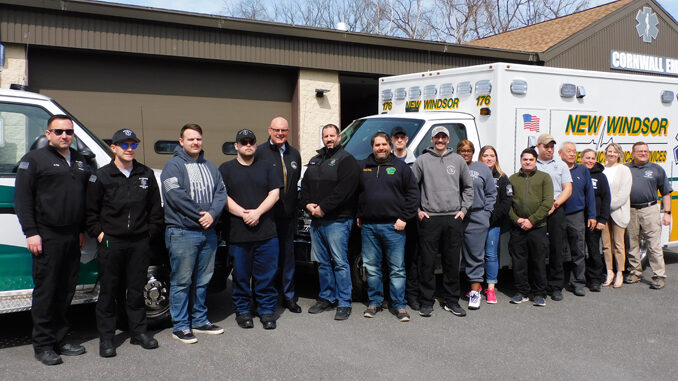
Michael Bigg, chief operations officer for New Windsor and Cornwall EMS, said he’d like to retire one day, but he also realizes he can’t run two agencies on his own. Fifteen staff members recently graduated from a week-long national run field training program to obtain the skills necessary to lead the agencies into the future. The training was conducted by Steve Cohen, who works for Robert J. University.
“This is the first step to develop our staff to be the next leaders of the organization,” said Bigg.
The Emergency Medical Services Field Training and Evaluation Program (EMS-FTEP) has been in existence for 15 years and is based on the “San Jose Model” first implemented by the police.
The purpose of the program is to transition new employees into an EMS agency and is designed to provide both the employee and agency with the greatest chance of success by providing a framework that assures employees understand, develop, and can demonstrate those skills and behaviors that the employing agency deems essential.
Oftentimes individuals are appointed as field training officers (FTOs) without receiving any training beyond their prior EMS field experience. The program is designed to introduce prospective FTOs to the structure, tools, techniques, and concepts of EMS-FTEP and provides instruction in the principles of adult learning, coaching, evaluation, giving feedback, and documenting trainee performance.
The week-long class was broken up into two different programs, explained Cohen. The first two days entailed completing a leadership program. The next three days focused on training the people who are actually going to be doing the work out in the field.
The program was both lecture and scenario based. The students were given different scenarios and had to work through the problems. There was also discussion of recent events that have been in the media regarding EMS and how certain situations might be prevented. Discussions also focused on patient/provider safety, as well as legal liabilities.
New Windsor EMS is the first agency in the region to implement this program, said Bigg, so an invitation went out to every ambulance corps in the county. A majority of the participants were from Cornwall and New Windsor, with two hailing from Monroe. Bigg commended the participants, who attended class from 9 a.m. to 4 p.m., often after taking 10 to 15 calls the shift prior. He said the students were attentive and asked many questions.
